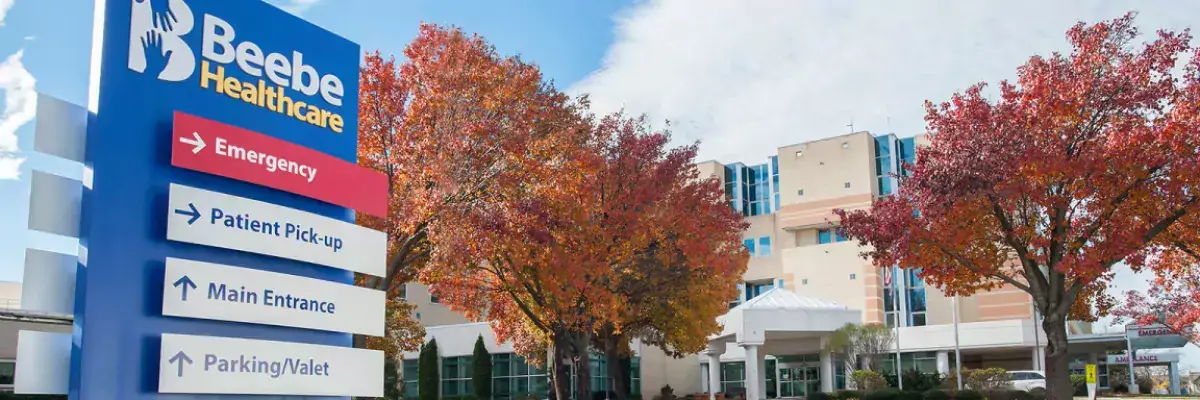Colon Cancer Detection – Catching it Early is the Key
By: John Tyson, MD, FACS, Board Certified General Surgeon at Beebe Healthcare
As a board-certified general surgeon who works closely with the gastroenterology team at Beebe Healthcare, we strive to provide patients with the safest, highest quality care. Preventative care and screenings are literal lifesavers. It is especially important for diseases of the colon and gastrointestinal tract.
Here are the four things we want you to know about colon cancer detection and treatment.
No excuses, get screened
Based on my experience as a surgeon, I feel I have a responsibility to do what I can, outside of the operating room, to educate people about the prevalence of colon cancer and just how important it is to detect it early.
Catching colon cancer early, and addressing it right away, really can make a lifesaving difference. In some cases, cancerous polyps that are in their early stages of development can be removed immediately, during a colonoscopy. In other cases, surgery is needed, and when it’s done early enough, the operation itself can be curative – meaning the patient does not need to undergo chemotherapy or radiation, too.
The latest recommendation for screening timing
The “gold standard” for colon cancer detection is to have a colonoscopy once you have celebrated your 45th birthday. We encourage people with no genetic history or concerns to have a screening colonoscopy every 10 years.
Screening every five years is recommended for those who have a family history of colon cancer, or who have symptoms often associated with colon cancer, such as thinning stools or blood in the stool. It is important to know your body and bring any notable changes or concerns to the attention of your primary care physician, promptly.
There is minimally invasive care, right here in Sussex County
From a surgical standpoint, I am able to offer laparoscopic approaches when a patient presents with inflammatory disease, diverticulitis, or cancer of the colon, and it is determined that a colectomy – or partial removal of the colon – is necessary.
I have been performing these minimally invasive procedures for three decades, and I am a big advocate of this approach to surgery because I know how much easier the process can be for the patient. He or she tends to experience less blood loss during the surgery and less pain after the surgery. Their recovery process and their ability to return to normal activities of daily living is typically much quicker. And, long-term, they end up with a few tiny scars instead of a long incision, across the abdomen.
We’re here for you
I also want people in Sussex County to know about the expertise of the specialists and surgeons that practices right here at Beebe. Our surgical teams truly provide quality and safe care to the people of Sussex County. Those who live in our local communities don’t need to travel far to get the highest quality specialty care. I promise – it’s available right here in your backyard, at Beebe.
Talk to your doctor today or call our office at 302-703-3630.
About Dr. Tyson
John Tyson, MD, FACS, is employed by Beebe Medical Group and sees patients at Beebe General Surgery located in Lewes. He performs a broad range of general surgical procedures, including laparoscopic colectomies for patients who have been diagnosed with colon cancer. Dr. Tyson earned his medical degree at the Penn State College of Medicine and completed an internship and residency training, both concentrating on general surgery, at the Naval Hospital in San Diego. He served in the Navy for 14 years before working at Florida State University College of Medicine as both Clerkship Director and an Associate Professor. Prior to joining Beebe, Dr. Tyson served as an Acute Care/Trauma surgeon at Bridgeport Hospital in Connecticut, where he was involved in surgical residency training. He was also part of the residency teaching staff at Yale University.



